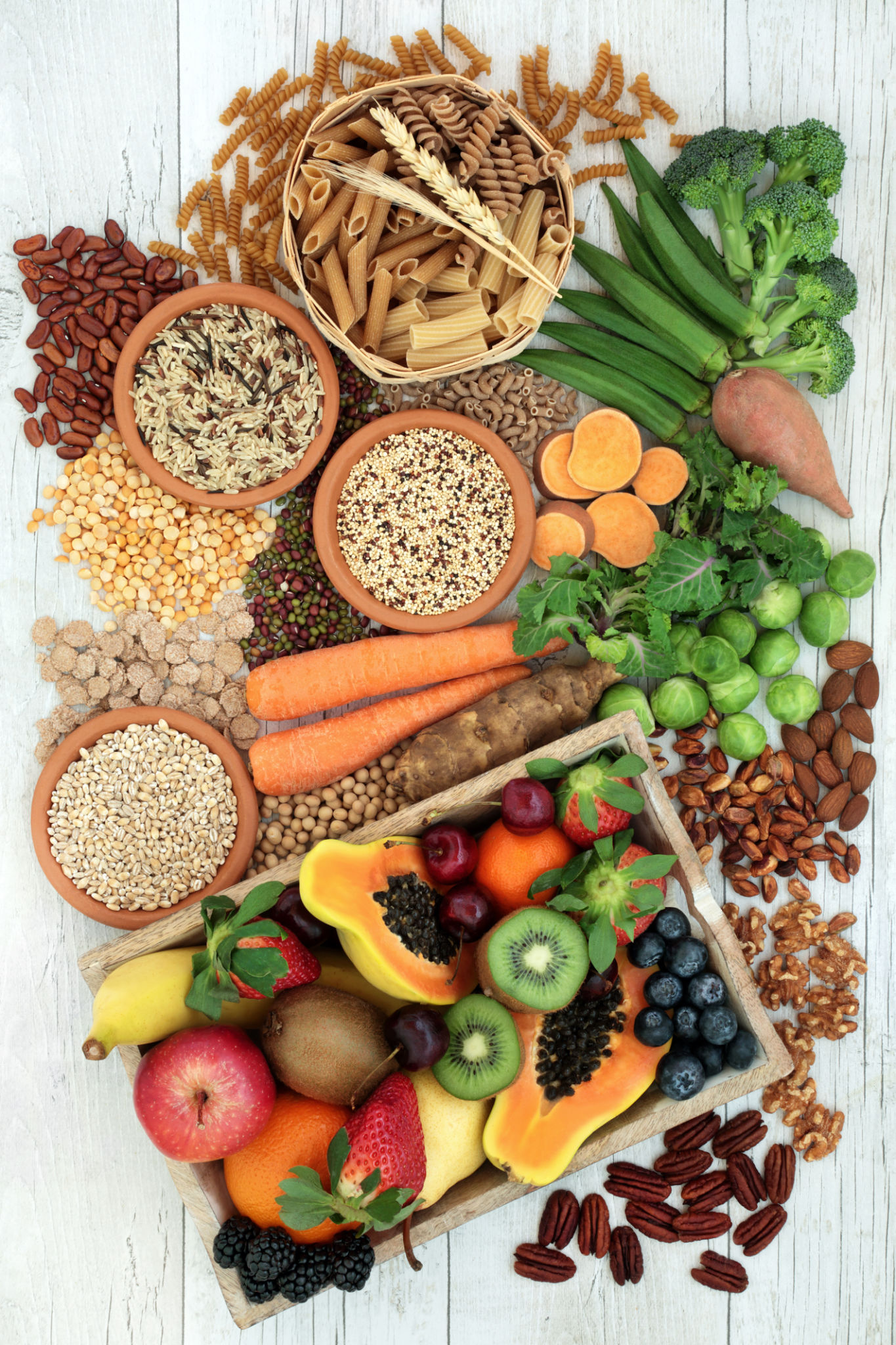DO THIS!! Not THAT!! I Need Help!! Women's Nutrition
Introduction to Women's Nutrition Myths.
Women's nutrition is a topic often clouded by misinformation and myths. These misconceptions can lead to poor dietary choices and overall health challenges. It is essential to separate facts from fiction to promote better health and well-being. It is really about "Nurturing Wholeness."
"Nurturing Wholeness: A Guide to the Synergy of Physical and Mental Health"
It is a comprehensive guide that offers readers an in-depth understanding of the connection between physical and mental health and how they can work together to promote overall well-being, by understanding what they can be empowered to do.
This book will help readers create a holistic wellness plan that includes exercise, nutrition, sleep, stress management, social connections, mindfulness, self-compassion, and lifelong learning.
With expert advice, practical strategies, and inspiring real-life examples, "Nurturing Wholeness" is an essential resource for anyone seeking to enhance their mental and physical health and cultivate a life of balance, fulfillment, and vitality.
https://copecart.com/us/products/5455c7cd/p/knowlesp021
Women CAN make informed decisions about their diet and health.
Understanding Common Nutrition Myths.
In the ever-evolving world of nutrition, separating fact from fiction can be challenging. With new diets and trends popping up daily, it's easy to get caught up in misinformation. Thankfully, Nassau's leading nutrition experts have debunked some of the most common myths that often mislead people seeking a healthier lifestyle.

Myth 1: Women Should Avoid Carbohydrates
One prevalent myth is that women should avoid carbohydrates to maintain a healthy weight. This is not accurate. Carbohydrates are a vital source of energy, and they play a crucial role in a balanced diet. The key is to focus on consuming complex carbohydrates such as whole grains, vegetables, and legumes, which provide essential nutrients and fiber.
Eliminating carbs completely can lead to nutrient deficiencies and energy depletion. Instead, women should aim for a balanced intake of complex carbohydrates, proteins, and healthy fats to support their overall health.
Carbs Are the Enemy
One of the most pervasive myths is that carbohydrates are inherently bad and should be avoided for weight loss. However, according to experts, not all carbs are created equal. Whole grains, fruits, and vegetables are essential sources of energy and nutrients. Instead of eliminating carbs, focus on choosing complex carbohydrates and maintaining a balanced diet.
The Role of Sugar and Supplements
All Sugar Is Bad
Sugar often gets a bad rap, but not all sugar is detrimental to health. While it's wise to limit added sugars found in processed foods, natural sugars in fruits provide essential nutrients and should be included in a balanced diet. Moderation is key when it comes to sugar consumption.
Understanding Good vs. Bad Carbs
Not all carbohydrates are created equal.
- Good Carbs: Fruits, vegetables, whole grains.
- Bad Carbs: Sugary snacks, refined grains, processed foods.

Myth 2: Women Need Less Protein Than Men.
Another common misconception is that women require less protein than men. While it's true that individual protein needs vary based on factors such as age, activity level, and overall health, women generally need an adequate amount of protein to support muscle repair, hormone production, and immune function.
Women who engage in regular physical activity or strength training may actually require more protein than the average sedentary person. It's essential to include a variety of protein sources in the diet, such as lean meats, dairy products, eggs, legumes, and nuts.
The Truth About Protein and Detox Diets
More Protein Equals More Muscle.
How much protein do you need?
According to Mayo Health Clinic System website, "Protein should account for 10% to 35% of your calories. So, if your daily needs are 2,000 calories, that's 200-700 calories from protein or 50-175 grams. If you're an average adult.
The recommended dietary allowance to prevent deficiency for an average sedentary adult is 0.8 grams per kilogram of body weight."
For example, a person who weighs 175 pounds, or 80 kilograms, should consume 63 grams of protein per day.
Usually after the ages of 40, Sarcopenia — loss of muscle mass through agin. Therefore our protein needs must be adjusted adequately, along with strength and resistenance training, in irder to prevent this and to maintain iadequate muscle mass and physical strength, Ones protein needs should increase to to 1-1.2 grams per kilogram or 80-96 grams per day for a 175-pound person.
While protein is important for muscle building and repair, consuming excessive amounts does not automatically translate to increased muscle mass. The body can only utilize a certain amount of protein at a time. Some examples of protein sources and amounts are as follows; 1-2 scoops of protein powder=15-25g protein. 1 can of lentils=20g, 3 handfils of walnuts/pistachio nuts/almonds =20g, 3 eggs=20g, palm-sized piece of meat= 20-30g)
Protein-Rich Foods for Women
Some excellent sources of protein include:
- Chicken breast
- Fish
- Organic Tofu
- Lentils
- Wild-caught salmon

Myth 3: Fat-Free Diets Are Healthier
The idea that fat-free diets are healthier is another misconception that needs addressing. Healthy fats are crucial for numerous bodily functions, including hormone regulation, brain health, and nutrient absorption. Completely eliminating fats from the diet can lead to deficiencies and other health issues.
Instead of avoiding fats altogether, women should focus on incorporating healthy fats such as those found in avocados, nuts, seeds, and olive oil. These fats can help support heart health and provide long-lasting energy.
Eating Fat Makes You Fat
The belief that consuming fat leads directly to weight gain is another myth that has been debunked. Healthy fats, such as those found in avocados, nuts, and olive oil, are actually beneficial for heart health and overall wellness. It's crucial to differentiate between unhealthy trans fats and beneficial unsaturated fats.
The Importance of Healthy Fats
Healthy fats can be categorized into different types:
- Monounsaturated Fats: Olive oil, avocados.
- Polyunsaturated Fats: Walnuts, flaxseeds.
- Omega-3 Fatty Acids: Salmon, chia seeds.
Myth 4: Supplements Can Replace a Balanced Diet
Many people believe that taking supplements can substitute for a well-rounded diet. However, experts emphasize that supplements should complement, not replace, food intake. Whole foods provide a complex matrix of nutrients that supplements alone can't replicate. Prioritize a varied diet to ensure comprehensive nutrient intake.

Conclusion: Making Informed Choices
Detox Diets Are Essential for Cleansing or optimal function.
The notion that detox diets are necessary to cleanse the body is misleading. The human body is naturally equipped with organs like the liver and kidneys that efficiently eliminate toxins. Instead of restrictive detox diets, focus on maintaining a healthy diet rich in fruits, vegetables,with diverse nutrients and prioritizing hydration through water intake.
Navigating the world of nutrition can be daunting with so much conflicting information available. By understanding the facts behind these common myths, individuals can make informed decisions about their dietary habits. Trusting reputable sources and consulting with nutrition professionals can help pave the way to a healthier lifestyle.
If you have concerns about your nutrition or dietary needs, consider consulting a registered dietitian or nutritionist who can provide personalized guidance based on your individual health goals. Check out "Smart Food Choices for Women Over 40: Anti-Inflammatory Foods and Their Benefits" blog post.